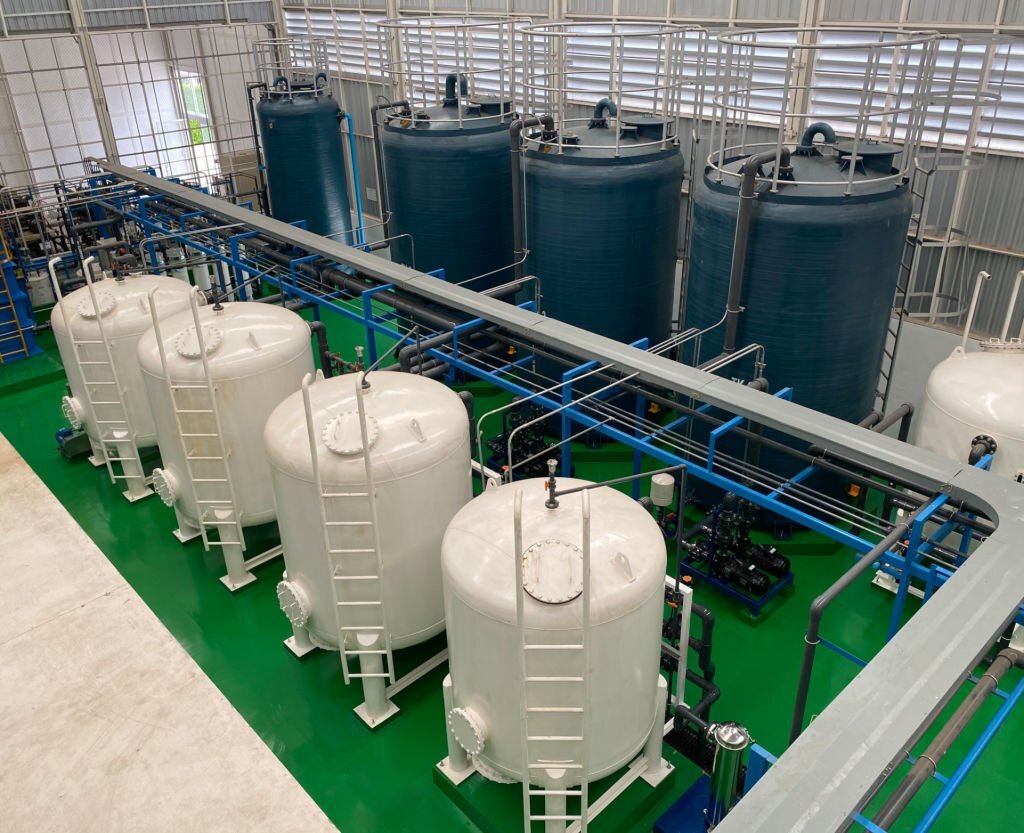Water Filtration has numerous benefits, from removing harmful impurities and pollutants to ensure safe drinking water to removing our reliance upon cheap, single-use plastic. There are currently various water filtration systems in the market, but finding out which suits your needs can be challenging. Today, let us find out the pros and cons of all the various water purification and filtration systems so that you can make an informed decision.

Activated Carbon Filters
Currently, activated carbon filters are one of the most popular water purification systems in the market. Activated carbon filters utilise a technique commonly known as adsorption. This process allows activated carbon filters to extract all the impurities found in water. The carbon acts as a magnet and attracts all the contaminants. As the contaminants adhere to the carbon, the water passes through the activated carbon filter.
Activated carbon filters are perfect for residential operations and small-scale water purification systems. In comparison to other water filtration methods, activated carbon filters are cheaper and easily available.
Advantages of Activated Carbon Filter
- Enhances taste
- Easy installation and maintenance
- Affordable and Easily Available
- Eliminates impurities
Disadvantages of Activated Carbon Filter
- Slower speed during the filtration process
- Filters need replacement periodically
Reverse Osmosis
Reverse osmosis uses physical filters to remove any impurities that are in the water. In reverse osmosis, various filters are employed to eliminate the impurities, but unlike regular filtration systems, it doesn’t send water through and into the reservoir. This method utilises pressure and switches the normal osmosis process. This means it forces water from a higher to a lower concentrated solution.
The process also needs clean water to lower the concentrated solution during the filtration process. But this method ensures that almost all the contaminants are removed.
Advantages of Reverse Osmosis
- Eliminates almost all the pollutants
- Enhances taste
- User-friendly
Disadvantages of Reverse Osmosis
- Can be a bit expensive
- Wastes water
- Maintenance frequency is increased.
Ultraviolet Filtration
Ultraviolet filtration is not as common to the masses but is also a great alternative to other systems. In this method, ultraviolet radiation is employed to eliminate harmful pollutants and microorganisms present in the water. This method is incredible if your goal is to eliminate all microbes and bacteria. The UV filtration system is expensive compared to others, although it barely requires maintenance and is energy efficient. On the downside, they do not remove solids and metals and are generally used as a secondary filtration system rather than a primary one.
Advantages Of Ultraviolet Filtration
- Eliminates microbes efficiently
- Conserves energy
- Eco-friendly
Disadvantages Of Ultraviolet Filtration
- Requires electricity
- High startup cost
- Doesn’t remove solids and metals.
Distillation
Distillation is a method of purifying water which you probably have heard of in science class. This method needs boiling water to transform into steam and then condensing back to liquid when it cools. The boiling kills all microbes that remain in the water. For solids and metals, evaporation and condensation ensure that they are left behind along with the other pollutants. Distillation takes place in the form of solar distillation and multi-stage flash distillation, which are large-scale and quite complex.
Advantages of Distillation
- Eliminates heavy metals
- Removes fluoride
- Removes bacteria
Disadvantages of Distillation
- Expensive process
- Does not remove contaminants after a specific temperature.
Infrared Filtration
Infrared filtration is comparatively new in the purification market. Infrared filters reveal water to infrared light as it goes through, drawing out contaminants like bacteria. UV filters and infrared filtration techniques do not eliminate all impurities, so they can’t deliver pure drinking water alone.
Infrared filters vary from other filters, such as UV filters, as this method can soften water.
Hard water has heightened levels of calcium and magnesium, which decrease the effectiveness of soaps and block pipes over time. Infrared light eliminates these minerals, softening the water.
Advantages Of Infrared Filtration
- Removes microbes
- Softens Water
- Easy installation
Disadvantages Of Infrared Filtration
- Does not Completely purify water
- Can be expensive
Find The Best Activated Carbon Filters From Cleantech Waters
Out of all the methods available in the market, activated carbon is one of the most affordable and easy-to-use water purification systems. We at Cleantech Waters are India’s leading activated carbon filter manufacturer; we supply you with the highest quality activated carbon filters for all your needs. Whether you require activated carbon filter systems for sewage treatment plants or to purify wastewater, our activated carbon filters come equipped with advanced technology and performance system to deliver clean water.
To learn more about the features of our product, feel free to contact us at 079- 4003 6917 or email us at info@cleantechwater.co.in.

